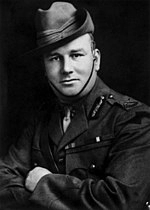How to Pronounce Harold Edward Elliott
#50
Most Popular
Boost
Jun 19, 1878 Charlton, Victoria, Australia Died on 23 Mar 1931 (aged 52)
Australian politician
GeminiHarold Edward Elliott, Date of Birth, Place of Birth, Family, Facts, Age, Net Worth, Biography and More in FamedBorn.com

Australian politician
Gemini